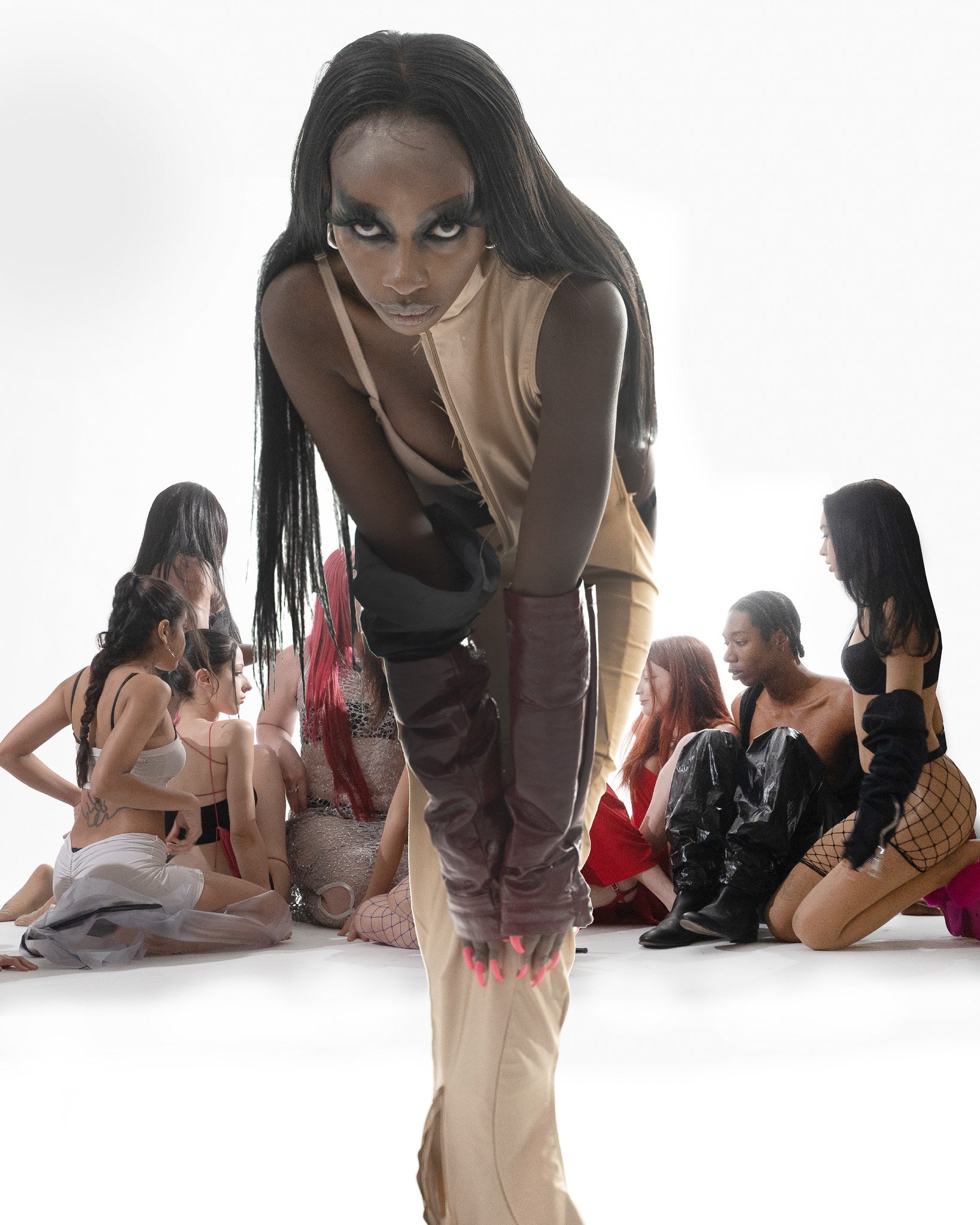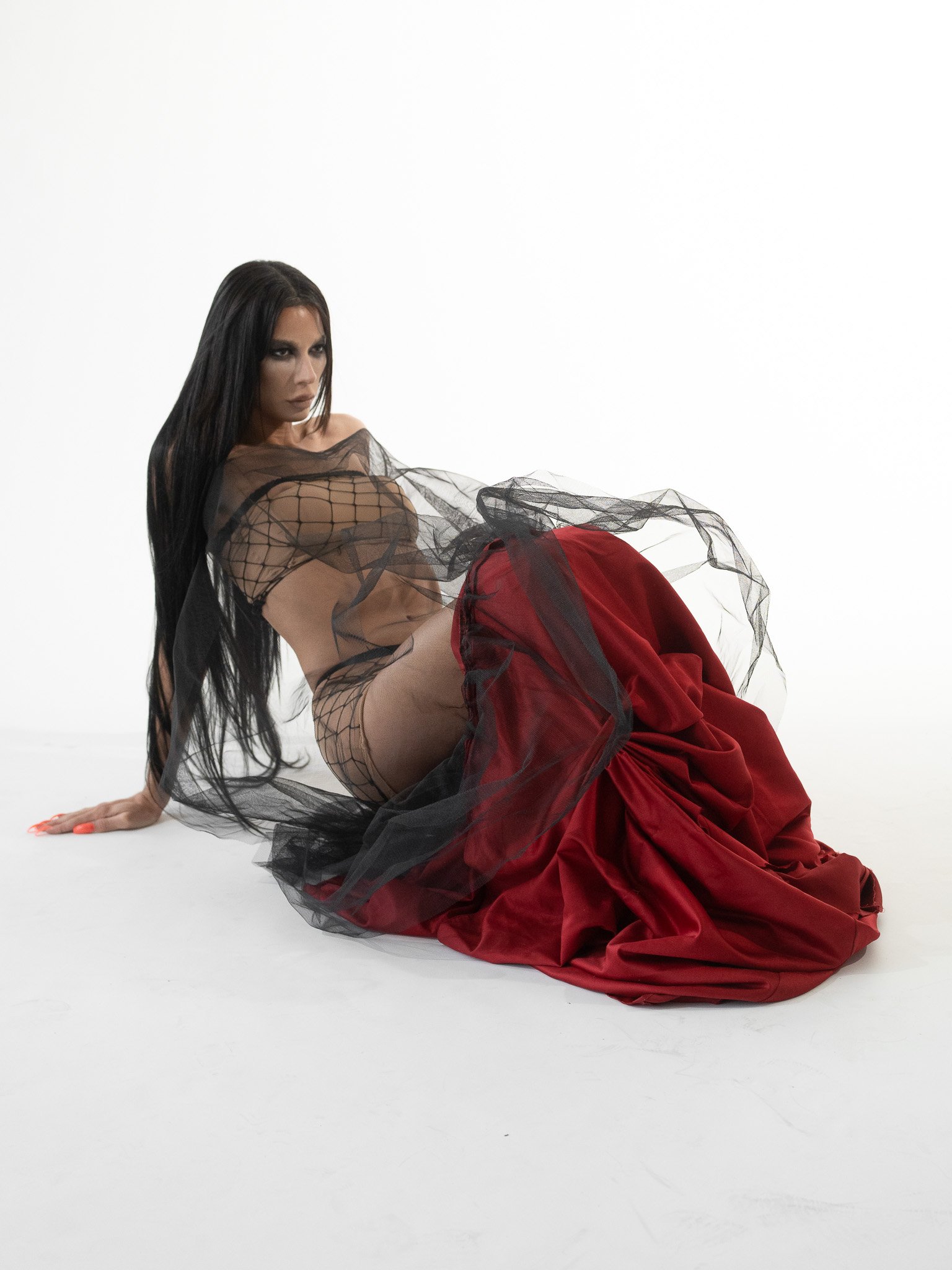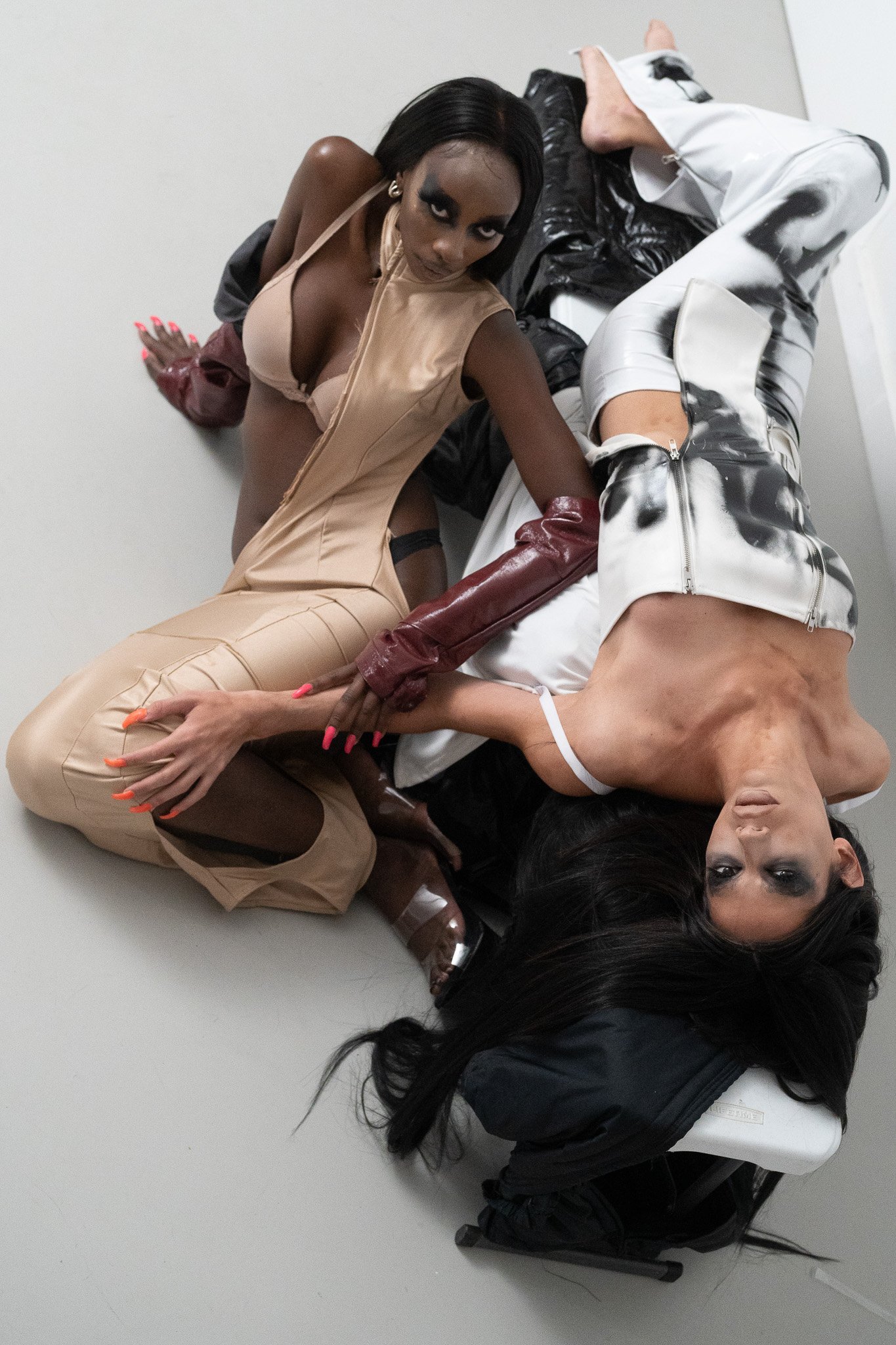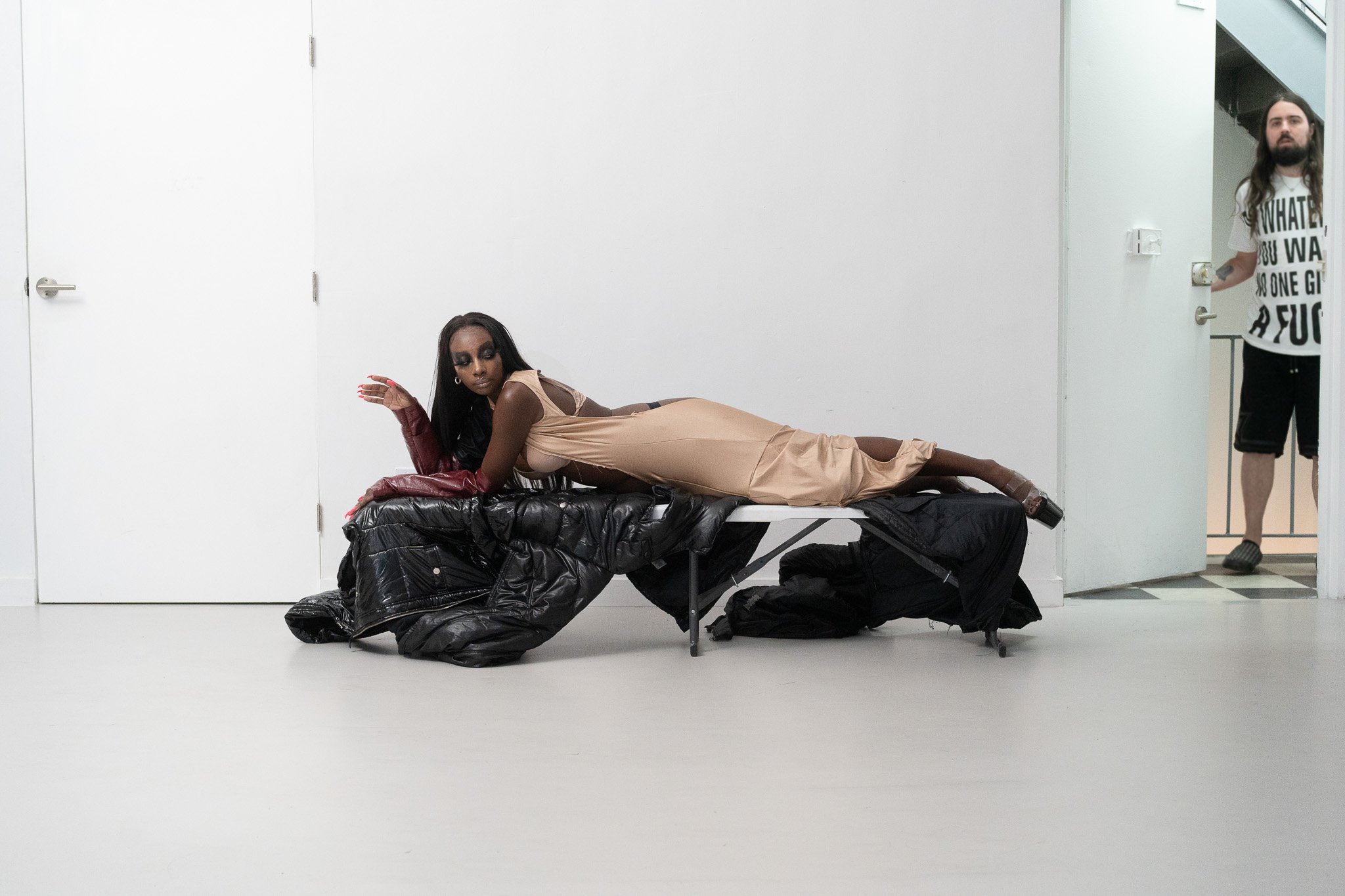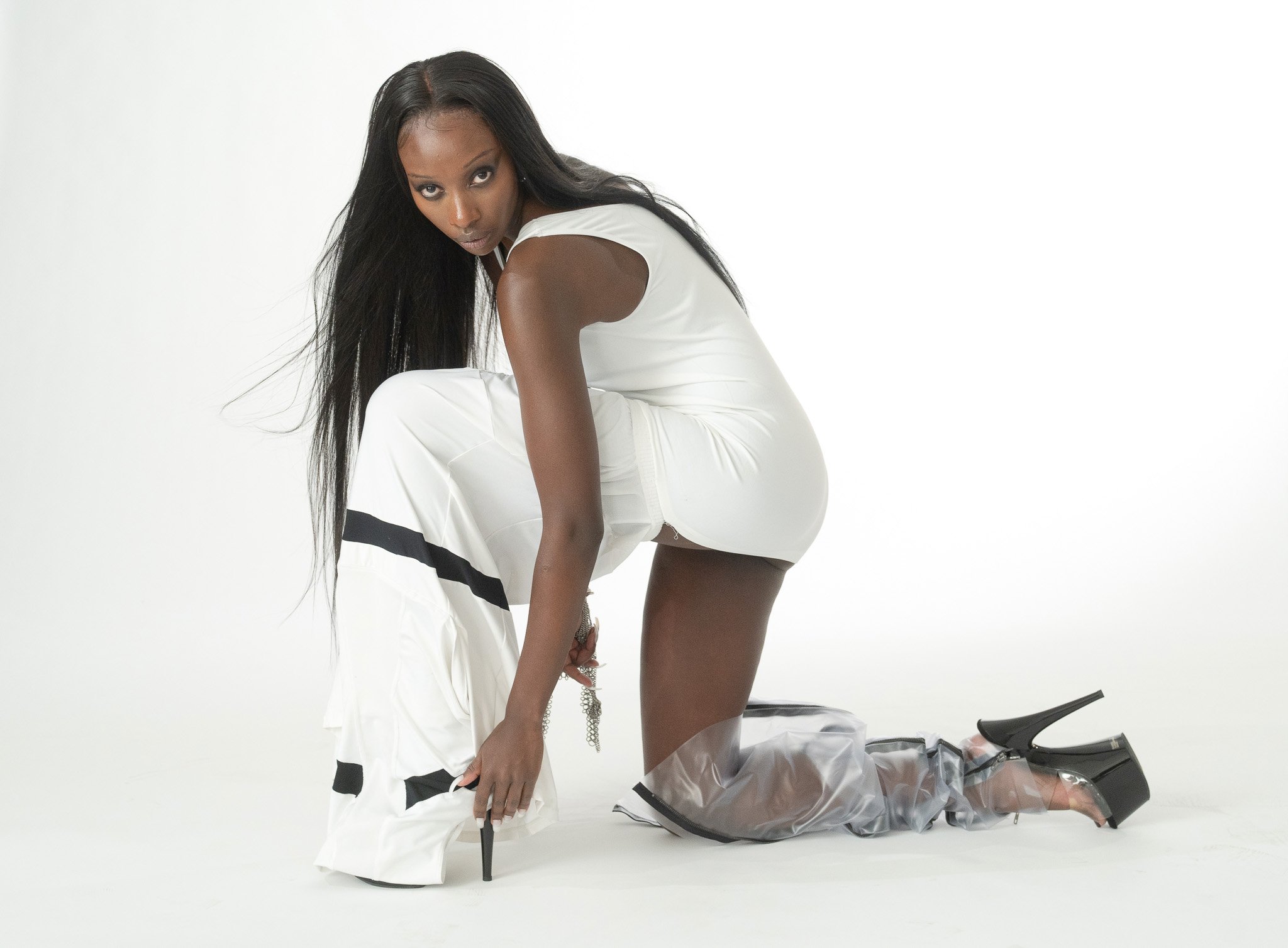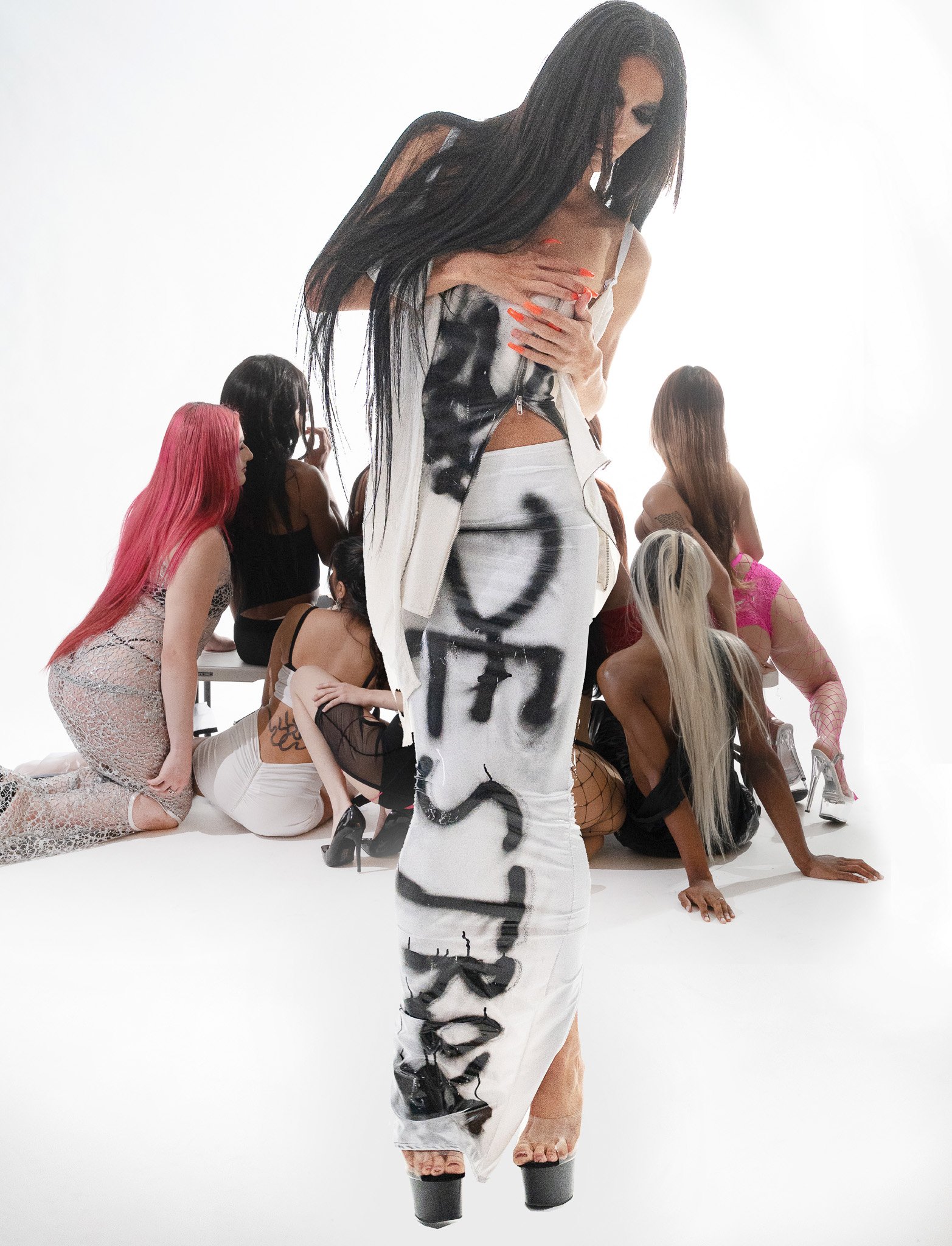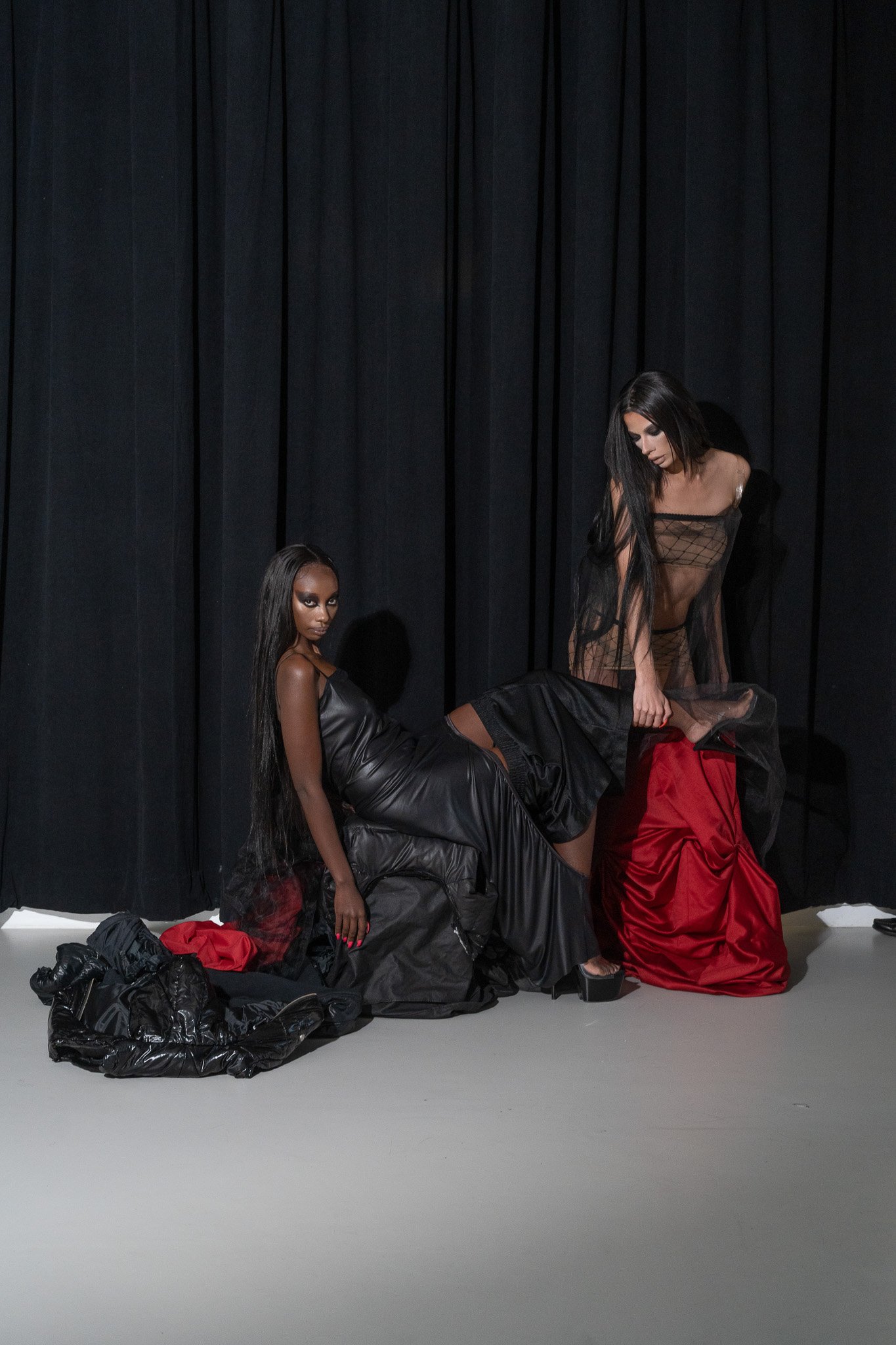Anna Bolina is the New York designer challenging us to be better than basic.
https://i-d.vice.com/en/article/7k8g8q/anna-bolina-interview
Though her garments ooze sex appeal, the designer is setting herself apart from the 00s revival, the ketamine-chic aesthetic and bimbofication.
In an abandoned storefront under the guise of a full moon, Anna Bolina, heralded as the “downtown Donatella ” staged her SS23 runway show in New York. The 29 year old designer has quickly become a favorite amongst the IYKYK-crowd for her aggressively sexual and artfully-marred garments, but also for the ways in which she is her brand. Models were sent down the runway clutching pull-cords secured to cascading hemlines of gown-like silhouettes that melted off legs into plastic stockings. Sauntering in clear, six-inch heels, their foot-long hair extensions swished like banners waving behind bodies, revealed through cut-outs that taunted and invited. As the bass pumped through the room, the off-calendar show blurred the lines between brand and personhood, performance and reality, and while other brand’s aspire to world-build, Anna Bolina is just living her life.
Having grown up with a school bus for a house on a hippie commune in California’s Humboldt County (which she describes as “the simplified version” of her story), Anna moved to San Francisco’s Tenderloin district to attend art college in 2011. Upon graduating, she worked for a nonprofit for two years before realizing she “could not stand to work in an office.” She characterizes her time on the West Coast with a certain freedom and reckless abandon that resulted in her abrupt departure from the Bay area.
“In the span of a week, I decided to move to New York, became a stripper and once again had no idea what to do with my life,” she said sitting cross-legged on her living room couch “I started making clothing in my down time because I was doing a lot of video art and wanted everything in the visuals to be of my own creation. When Covid hit, the clubs closed so I had to find another way to make money and that’s when I started taking fashion seriously.” Now, as Anna’s nascent namesake brand enters its third year and she prepares for her upcoming AW23 show, much of her process remains the same – anchored by intuition, inspired by her own life and guided by trial and error.
From her Instagram it’s easy to see that she’s the main character. Upon creating a new one-of-one silhouette or debuting a new colorway of her signature tube dresses, Anna preens, darkening the circles around her eyes and pressing record. “If I’m not posting, I’m not making money,” she says, operating with the kind of aspirational irreverence of someone who isn’t seeking validation. “If a post on Instagram didn't get that many likes, I'm not gonna take it down. Like, who the fuck cares? I think people are so conditioned by this culture of approval that it makes them go with a lot of things that have already been approved by the culture instead of figuring out their own vibe,” she explains.
This is where the brand’s epochal slogan, “do whatever you want, no one gives a fuck,” came from. “Something that I've realized from people messaging me is that what people take from me is the realization that you can do something you didn’t think you could do and be what you didn't think you could be,” she continues.
With vibe-capitalism as the currency du jour, fashion brands have become tokenistic, siloes of constructed identities for individuals to collage as if they were personality traits. Anna’s tube dresses, Chopova Lowena’s pleated skirts, Balenciaga’s Le Cagole bags and more, have come to define “basic hot” – vestiges of “cool” that can be bought and worn by whomever. The act of getting dressed is a way to be a part of the conversation without speaking; we’re performing all the time, whether we’re posting it or not. For Anna, performance isn’t the problem.
“I'm here for people who make a character, or tell a certain story and are bold about it,” she says, but with little separation between her and her brand, the level of exhibitionism warranted from her is both enjoyable and exhausting for the same reason: honesty. “Sometimes it's hard because I don't want to have to put myself out there so much, and a lot of the time my inspiration comes from my life. But simultaneously, when I see brands pop up on Instagram and I don't really know who's behind them, I think they lose a lot of their intent because it’s so removed,” she adds. “I don’t want to make a separate account for my brand. I like that you can learn the characters and see the process, the hard moments and the good ones.”
Anna’s process derives itself from personal instinct. Everything is made in New York City. She sources found fabric each week from a handful of thrift stores, upcycling them, using them as patterns, or turning them into something entirely different. Generally, her own body and affinities serve as the genesis of each piece and as she tries to scale the brand – doing things like outsourcing production, exploring menswear offerings and making pieces outside the lines of her own wardrobe – she’s having to strike a balance between purity and evolution. “Once you introduce your audience to a certain vibe, it’s what they expect from you,” she says, referring to her now definitive screen printing practice done in her apartment’s kitchen – “and when you want to expand into different things, you have to bring them with you.”
Due to the inherent sex appeal of certain pieces Anna’s designed, like sheer bodycon dresses boasting shameless cut-outs, or micro minis made from five-inch strips of faux-leather fabric, printed with the word “censored”, Anna’s brand is often pigeon-holed. Her work is often discussed in reference to y2k revival, the ketamine-chic aesthetic and bimbofication. “I feel like people have tried to attach those references onto me, but I always want to be looking forward,” Anna says. “We already know what the reaction to the past was, the feedback has been given and I want to take risks.”
While many have also used the word “slutty” to describe the garments, Anna points out that sensuality and having one’s sexuality on display shouldn’t be made synonymous with the intrinsic shaming tied to the word – even in its attempts to be “empowering”. “Fashion is inherently about being desired, and that’s a lot more complex than showing off your body, " she explains.
In fact, much of Anna’s success comes from figuring out how to give vulnerability a bold face. The brand itself operates with a penchant for the subversive, flaunting dark proclivities with intimidating carnality. Each collection yields a new exploration into the underbellies of our personas – opting for a theme of a mental breakdown for SS23, aligning with based, cultural drivers in SS22, as the collection was emblazoned with the words “drama, power, fame, greed, waste, money”, or fixating on extravagance in AW21. For AW23, Anna is moving beyond text-based adjacencies while saying goodbye to the well-worn tropes that have traditionally defined femininity (i.e. rhinestones and nudity) and left us numb to sex-appeal. By taking banal silhouettes and casual materials and elevating them, Anna strives to satisfy the evolved cravings of a truly licentious palette, ever-inclined towards the experimental. As she was sourcing fabrics, she came across countless dupes from fast-fashion brands that were rode hard and discarded apathetically, yielding “excess” to become a focal point for the collection.
After all, Anna’s never been afraid to “go there”, and clearly it’s paid off. “[You have to] put yourself out there without knowing people are going to love it. It's okay to make something people hate! Make them feel uncomfortable, make them feel something at least. But provocation for just the sake of it is so boring. It has to come from a real emotion and it's easy to detect when someone is just trying to be an edgelord,” she says. With the rise of apps like BeReal, influencers being “out” for 2023 and sanity being the sequel to unplugging, Anna believes that what the world is craving is rawness, and she’s going to give it to them. But, also, a word of advice: “Stop making mood boards and live your life.”


